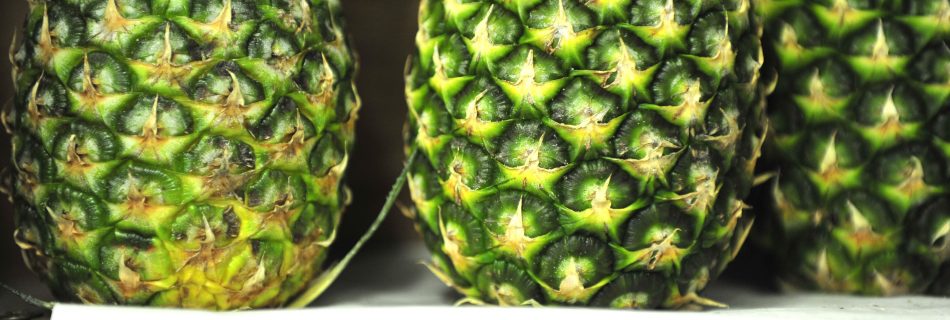Seasonal and (not-so) local guide: exotic foods

On occasion you might get a hankering for sweet and sour noodles, or avocado on toast. We may also see exotic foods as a key part of our food culture and just call them plain food! Either way, we need not deprive ourselves completely of these foods. There are ways we can get more creative with what we do have available locally and seasonably though to recreate the taste without the social and environmental footprint. For instance, apples can act as an alternative to pineapple in sweet and sour, and crushed minted peas or broad beans are a great alternative to avocado on toast.
Cultural diversity
The cultural diversity of Bristol is what makes it so vibrant. It is what gives Bristolians its flavour – pun intended. Plantain, yams, bok choi, chickpeas, and many other ingredients are culturally important to this global city. As mentioned in our foraging post, many exotic spices can be grown in the UK; and so can many of these plants. Hodmedod’s sources its quinoa (and now chickpeas!) from UK suppliers for instance. For those of us with a garden/allotment and the patience to wait several years for an avocado tree to bear fruit there are even how to guides online on how to grow them from seed. Given climate change is set to increase the UK’s climate it is entirely possible. We already have a number of vineyards – so why not avocado trees? The key is to ensure they are not F1 hybrids. This denotes that they’re good only for producing crops, not for creating new plants – so don’t be too disappointed if you wait several years, then nothing comes of it.
If you are to cook with treat fruit and vegetables, try to buy them when in season to promote a more direct supply chain that reduces the need to process and store food. Look out for the Fairtrade logo and where possible buy from retailers that build direct relationships with the growers. Wogan coffee is a prime example – one of our suppliers of pre-packed and espresso coffee. They travel to visit their coffee producers, to test the quality but also to understand producer needs and constraints.
So when are exotic foods in season?
As a rough guide, pineapple, pomegranate, lemons and passionfruit are available from December-March. Bananas are ready Feb-April and figs from September-October. Strawberries, raspberries, peaches and apricots can be grown in the UK when in season (see our seasonal fruit and veg guide). They are normally grown under greenhouses in southern Spain when out of season. Kiwis are likely to have traveled from Italy, as the EU imports 80% from the region.
Melons, are mainly imported from Italy, Spain and southern France, although they can now be grown in the UK under polytunnels. You can even by seeds that are suited for the UK climate,  including an old Ukranian variety called ‘collective farm woman’. The Watermelon season in the UK starts in late spring with the early crop of melons arriving around April from Spain, Iran, Morocco, Tunisia and Cyprus. By June the Greek watermelons are ready for harvest and are supplied to the UK market until the end of the season – usually late September.
including an old Ukranian variety called ‘collective farm woman’. The Watermelon season in the UK starts in late spring with the early crop of melons arriving around April from Spain, Iran, Morocco, Tunisia and Cyprus. By June the Greek watermelons are ready for harvest and are supplied to the UK market until the end of the season – usually late September.
Mangos are more complicated. If they’re imported from Mexico their peak season runs from March till September. Brazilian mangoes run September through January. Supermarkets don’t disclose why they source their produce from a particular country, but it will ultimately be down to cost. Because of this the average consumer is unaware if the produce is in season, or has been kept in storage and ripened artificially.
Most avocados ripen October-November, but this varies slightly depending on where their sourced. Hass are the exception, as they are available year-round. Mexico, California, South Africa, the Caribbean, Central America and Chile produce the majority of the world’s avocados. We normally source ours from Spain, but this changes throughout the year to ensure we can supply avocados for most months.
Tags: avocado, exotic foods
